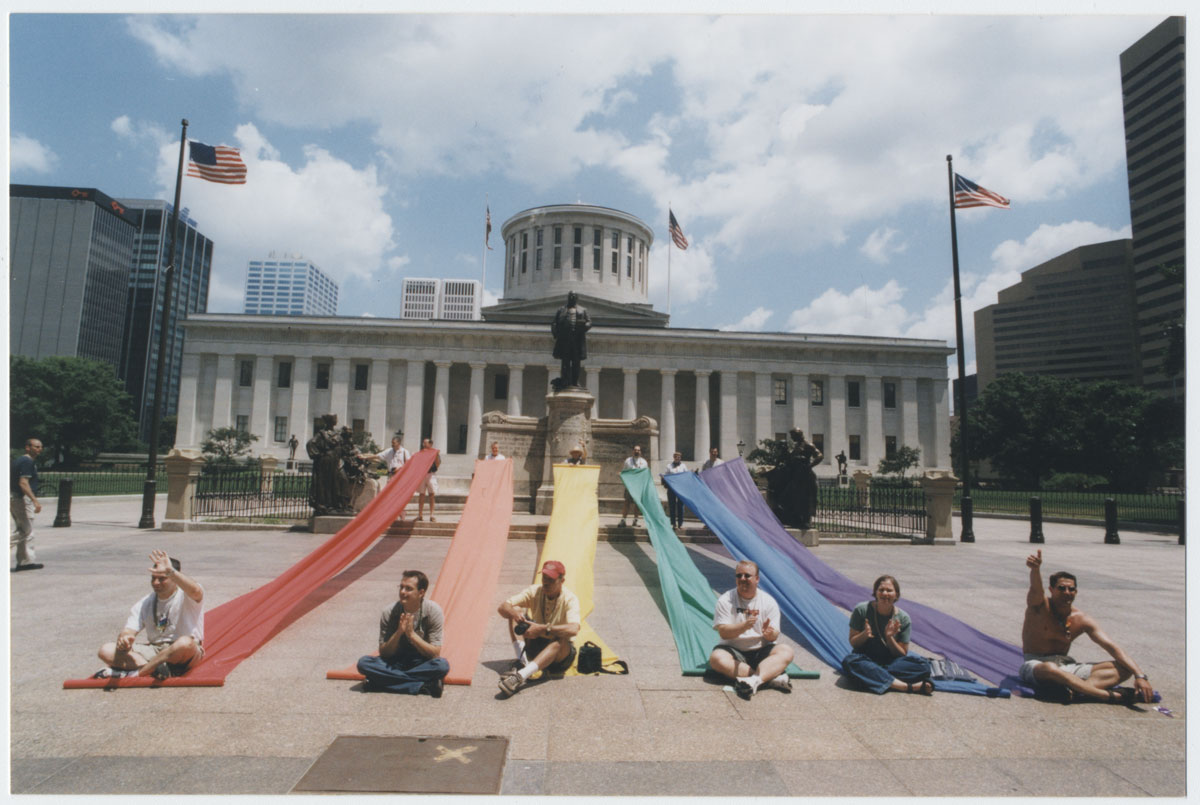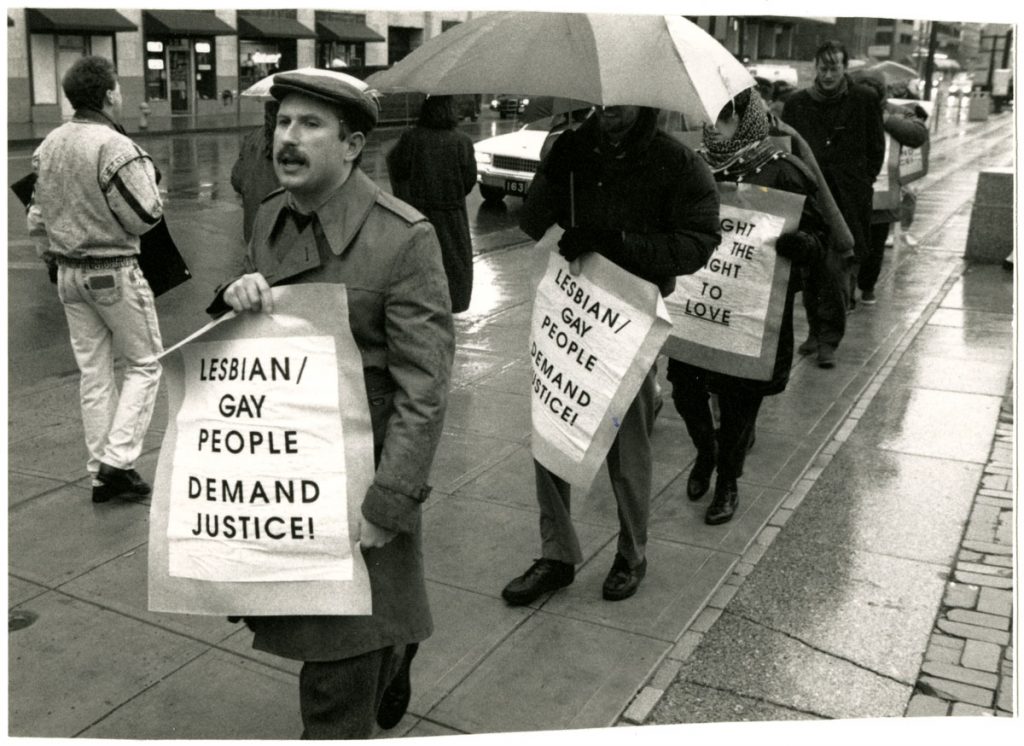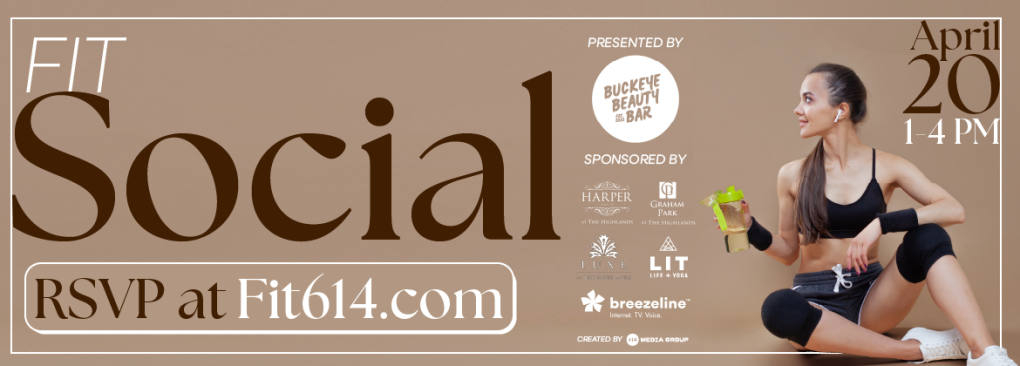STONEWALL 50 YEARS: A look back

June 28 and 29, 2019 will mark the 50th anniversary of the riots at the Stonewall Inn in Greenwich Village, Manhattan, when LGBT bar patrons clashed for days with New York City police. The riots served as a symbolic catalyst, helping to spark the modern gay rights movement in the United States. Decades later, the Stonewall name remains synonymous with LGBT activism and empowerment.
Though the famed Pride Festival is Columbus hallmark mainstream LGBT event, other important pieces of LGBT activism and history also line its streets. The progress made since the early years after the Stonewall riots was neither accidental nor inevitable, recalls Douglas Whaley, Professor Emeritus at Ohio State’s Moritz College of Law, and an early Board member of Stonewall Columbus, founded in 1981.

Whaley moved from Indianapolis to Columbus in 1976 for two purposes: to come out as a gay man, and to fulfill a visiting faculty position at Moritz. Entering not only a new city, but also a different social environment, was a frightening experience.
“It was a slow-developing thing, but I was terrified,” Whaley recalls. “I was afraid I’d be fired if someone found out. It had only been like 10 years since it had been a crime in Ohio to be gay and there were still statutes on the books against importuning, which is asking someone if they want to have sex. That could get you arrested and people were being arrested for that.”
His reservations didn’t last long, and that same fall when a woman named Rhonda Rivera arrived on the law school faculty, Whaley—tipped off to Rivera’s sexuality by the gay law students who often visited his office—worked up the courage to approach her regarding their “common social difficulty.”
While bonding that day at lunch, the two discussed what they would do if asked about their sexuality by other colleagues or the college’s dean. “Would we admit it, would we lie? And that’s how very different it was,” Whaley remembers.
Rivera soon became a titanic figure in Columbus’ LGBT community, using her legal background to advise OSU, the City of Columbus, and the State of Ohio’s incipient protections for the LGBT community. Stonewall Columbus’ annual Human Rights Award is named for Rivera, and in 2010 she was inducted into the Ohio Civil Rights Hall of Fame for her work on behalf of the LGBT community.
“I one time told the San Francisco Examiner her name should be spelled with all capital letters and four exclamation marks,” says Whaley. “And the reason that Columbus is as gay-friendly as it is, is because of the great Rhonda Rivera. She was like a force, and everyone loved her. And she bullied people, but she did it in a good cause.”
While Rivera and Whaley worked with Stonewall Columbus to move the needle towards legal protection and mainstream acceptance, others initiated necessary, productive conversations and provided innovative safe spaces for the LGBT community across the city. While less-heralded, these groups and programs also contain indispensable pieces of Columbus’ LGBT history according to Luster Singleton, the Community Outreach Coordinator at Mozaic, Ohio’s first community wellness space for gender non-conforming youth and young adults.
“There’s so much history,” she said (Singleton considers themselves gender non-conforming, and uses he/they/she pronouns). “There are so many places that should have a metal plate in the sidewalk or something so that you could do a walk of historic and famous things that you need to know around LGBTQQIA stuff.”
Singleton was also drawn to Columbus from Zanesville by Ohio State in 1979, and she soon found herself at home in the university’s nascent Women’s Studies Department. Before long, Singleton and her “fierce group” of peers had founded a group called Diversity of Ohio, “to try and talk about the issues, and address issues, and to help Stonewall, and to help OSU Gay and Lesbian Student Services better meet the needs of folks of color.”
BROUGHT TO YOU BY
Singleton also co-founded H.I.S. Kings, a popular drag king production beginning in 1994, the International Drag King Extravaganza which examined masculine gender, and also worked as a coordinator at OSU’s LGBTQ+ student center, known in the mid ’90s only as the Gay, Lesbian, Bisexual Student Services Office (GLBSSO), with no advertisement of services for transgender students.
Singleton, then also enrolled in classes and technically a student, made a subtle and strategic request of her boss, forcing the GLBSSO’s hand and the addition of a “T” to the office’s name. While at OSU, she helped start the Rainbow Celebration & Graduation ceremony for LGBTQ students, now hosted by the Office of Student Life’s Multicultural Center.
“We’ve done HIV and STI work in this city for 28 years. This right here [Mozaic], another first. Of all the places that they could pick to put one, they decided to put it in Ohio, which is insane. We get calls from West Virginia, Indiana, Michigan, because nobody has anything like this clinic available to them.”
For Singleton, the impact of Pride has always been deeply personal. The first Columbus Stonewall Pride parade in 1981 coincided with a dark time in her college experience. Feeling distant from family, and having recently put her child up for adoption, Singleton was on the verge of collapse.
“I honestly decided that I was gonna check out that day […] I just was like, everyone would be better. And so because I’m dramatic, I decided to take one last walk around campus. They were just building up Short North; I thought I would just take a walk. And when I did that, I ran across the first Stonewall Pride. And because I’m nosy and I saw six-foot drag queens with feathers coming out of their head—What on earth is going on?—I went over there and long story short […] I was standing on the side, and I look over and there’s this little kid. I’ll never forget his face. He couldn’t have been more than five years old.
“And his mom’s holding his hand, and she’s looking at him and she’s going, “God hates fags, God hates fags” and he’s looking at her and then he’s like, “God hates fags,” and I just thought to myself, ‘Who am I?’ What kind of coward are you? You gotta step off of here. You have to do it.” That experience provided her the inspiration and resolve to carry on.
“And so I always say that Pride saves lives. It saved my life. And from that moment on, I just was like, ‘I’m going to try to be visible.’ You know, to help other people be visible.”
For both Whaley and Singleton, Columbus has served as a refuge and a supportive community, in turn inspiring activism that has returned the favor for the benefit of future generations. Their work has preserved and expanded the inclusivity of a city that now prides itself on widespread acceptance and defiance of repression, even amidst an increasingly conservative state legislature.
“My prayer every night was to be relevant. I just wanted to do stuff that was relevant enough to help my nieces and nephews,” says Singleton. “Relevant not just like super-famous or anything like that, but to have things that I did or worked on to be meaningful whether anybody knew it or not. I mean, it’s been an amazing life. So many things that we’ve gotten to participate in have just been incredible.”
BROUGHT TO YOU BY





